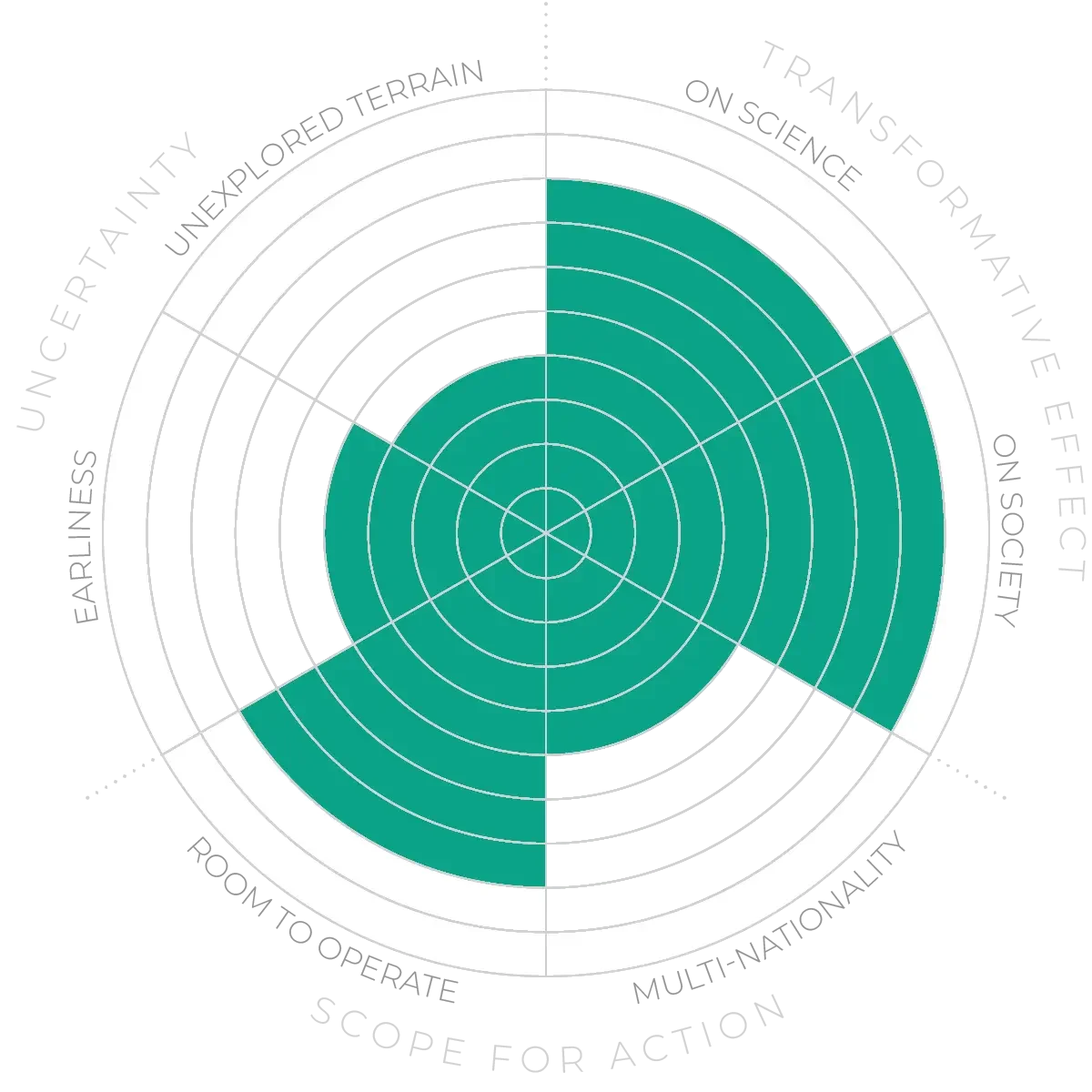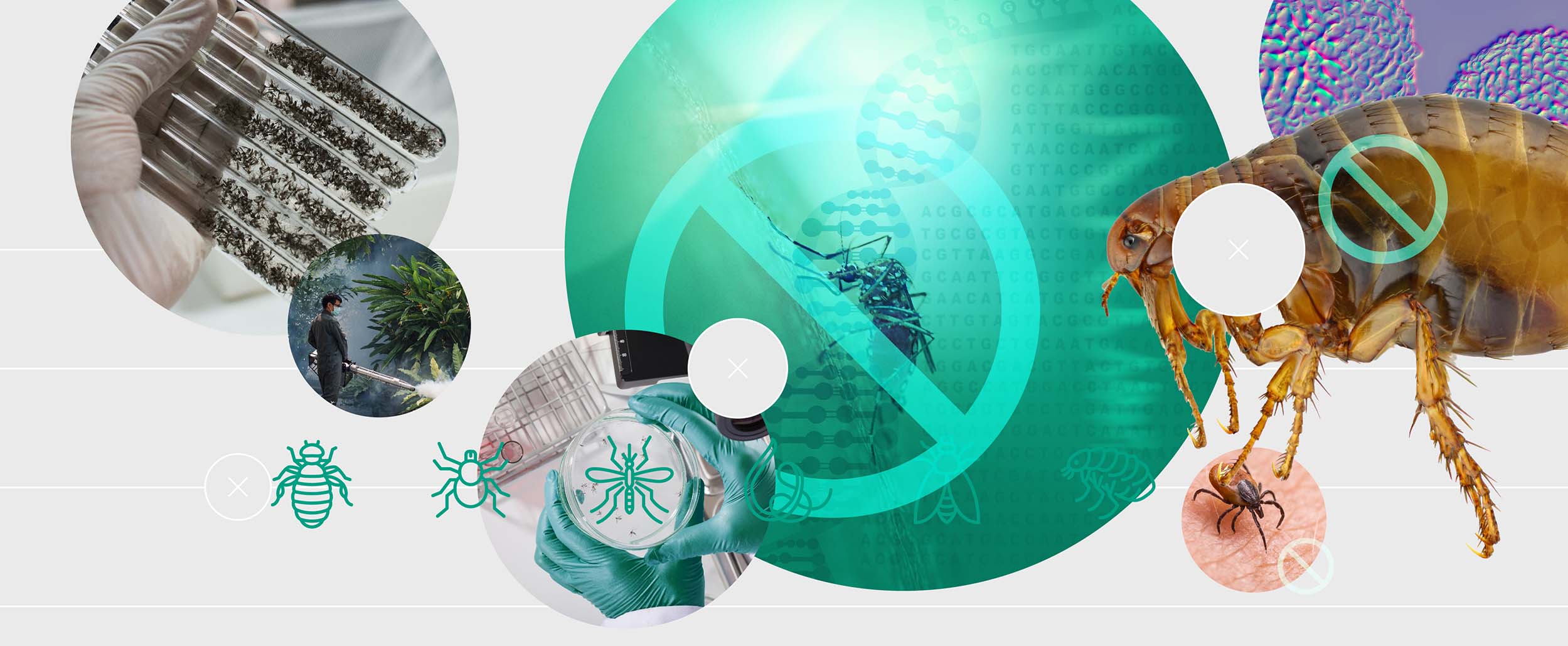Future Horizons:
10-yearhorizon
Synthetic biology harnessed
25-yearhorizon
Vector microbiomes put to work
A number of emerging tools can directly control vector organisms. For example, altering the gut microbiome of mosquitoes or tsetse flies can make it impossible for them to host the parasites responsible for disease development in humans.14
Similarly, genetically modified Aedes aegypti mosquitoes have been released in Florida, carrying a gene that kills females in the larval stage.15 The mosquitoes carry a range of diseases including Zika, but it is hoped that the female-lethal gene will spread and cause the population to dwindle, reducing transmission of the pathogens.16 Previously, trials have used mosquitoes infected with Wolbachia bacteria, which have successfully reduced the transmission of dengue.17
Alongside these control mechanisms, we need to develop indicators of ecological health that influence disease risk: essentially, early-warning systems for outbreaks. A crucial step in devising such systems will be to integrate surveillance of human and animal diseases.18 At present these are monitored separately, often by distinct agencies.19
Vector control - Anticipation Scores
The Anticipation Potential of a research field is determined by the capacity for impactful action in the present, considering possible future transformative breakthroughs in a field over a 25-year outlook. A field with a high Anticipation Potential, therefore, combines the potential range of future transformative possibilities engendered by a research area with a wide field of opportunities for action in the present. We asked researchers in the field to anticipate:
- The uncertainty related to future science breakthroughs in the field
- The transformative effect anticipated breakthroughs may have on research and society
- The scope for action in the present in relation to anticipated breakthroughs.
This chart represents a summary of their responses to each of these elements, which when combined, provide the Anticipation Potential for the topic. See methodology for more information.



